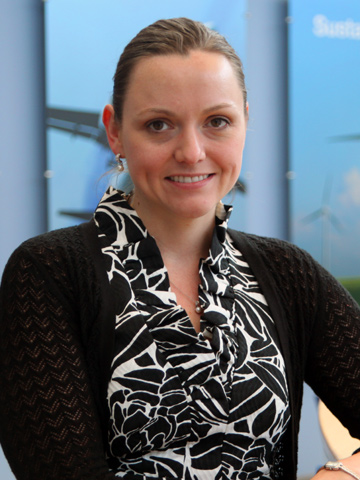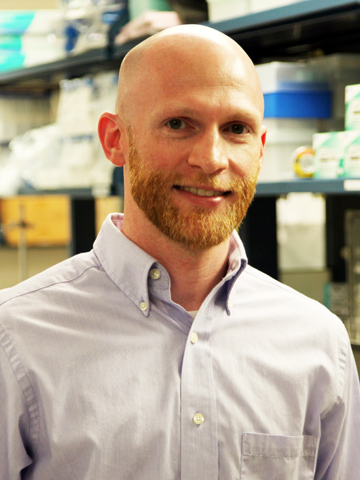Parks College Represents SLU at National Engineering Symposium
Two faculty members — Amanda Cox, Ph.D., and Scott Sell, Ph.D. — represented Saint Louis University and Parks College when 50 of the nation’s most innovative engineering educators gathered for the National Academy of Engineering's (NAE) eighth Frontiers of Engineering Education (FOEE) symposium Sept. 25-28 in Irvine, California.

Cox is an assistant professor in the Department of Civil Engineering and Sell is an assistant professor in the Department of Biomedical Engineering.
The symposium brings together talented engineering educators to share ideas and learn from others about new and innovative approaches to educating the next generation of engineers. Attendees were nominated by NAE members and deans and chosen from a highly competitive pool of applicants. The symposium is organized around important issues facing engineering education. The program consisted of a mix of interactive panel discussions and small group work.
“One of the ideas I pulled away the most from was how to do what’s called a ‘flipped classroom,’ where students watch a short video before class and then work through problems together in class in small groups,” Cox said. “Conceptually I understood how this concept worked, but having the opportunity to talk to people who had implemented it their classrooms and been successful with it helped me understand the details.”

“I always work to improve my teaching skills, so seeing some of the tremendous things that others have implemented into their classrooms was pretty invigorating,” Sell said. “There is some really great engineering education research going on right now in this country, and it was fantastic to see some of the really large engineering schools devote resources to the development of programs or even departments in engineering education research. It made me feel good about the future of engineering education and spoke to the high level of education that we are providing here at SLU.”
Both Cox and Sell shared concepts they’ve implemented in their classrooms as well. Cox’s focus was on developing learning modules for entrepreneurship in water resources. Sell focused on integrating entrepreneurship into tissue engineering education.
Cox received her B.S. degree in civil engineering from the University of Missouri – Columbia. She received her M.S. and Ph.D. degrees in civil engineering from Colorado State University (CSU) specializing in hydraulic engineering. Prior to joining SLU, she was a research scientist and laboratory manager at the CSU Hydraulics Laboratory. Her expertise includes physical and numerical hydraulic modeling encompassing several areas of hydraulic engineering including river modeling, channel rehabilitation structures, bridge pier scour, reservoir outlet works and storm water erosion control.
Sell received his education from Virginia Commonwealth University, receiving his B.S. in biomedical engineering in 2003, his M.S. in biomedical engineering in 2006, and his Ph.D. in biomedical engineering in 2009. Following his graduation, Sell completed a three-year polytrauma research post-doc fellowship at the Hunter Holmes McGuire VA Medical Center in Richmond, Virginia. Sell conducts research in the areas of tissue engineering and regenerative medicine, particularly focusing on various scaffold fabrication techniques to create extracellular matrix analogues for dermal and musculoskeletal repair.

















